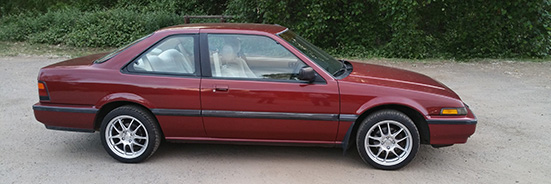For brakes, like sliders and such I use the little bottle of CRC Synthetic brake lube. It's got a little brush in the lid so you can keep your hands clean. I seem to do quite a bit of brake work, and it's been handy to have a nice jar of it. I also have used the CRC Brake Quiet, which I wouldn't consider a lube. It seems to be more of a rubbery adhesive that's bright orange, but eventually collects enough dust that you can't see it anymore. I decided not to use the Brake Quiet when I put the brakes on the Miata, and haven't had too much trouble with noise.
http://www.crcindustries.com/auto/co..._ss.aspx?ID=64
I also have a tub of Valvoline synthetic general purpose grease for wheel bearings and such. According to their website, it's a lithium-based "NLGI #2 Grade Lithium 12-Hydroxysterate EP Grease" I have no idea what that means, but seem to work well for rear wheel bearings and such.
http://www.valvoline.com/products/co...-oil/grease/64
Also have a tube of Syl-Glide that I use for door hinges, the flappers inside the heating system, and other non-critical stuff.
That's really all I've got in my collection, and it seems to get me by just fine so far. I don't really rebuild CVs, just replace them with new/rebuilt ones, so I have no idea about that.





 Reply With Quote
Reply With Quote



 , at least some of it can, it's the messiest stuff on the planet as far as i'm concerned, and there is almost nothing that will remove it from your hands, or dissolve it from the parts you are working on. I'm not sure about the newer stuff but some of the older stuff had poisonous compounds in it that could be absorbed right through your skin,
, at least some of it can, it's the messiest stuff on the planet as far as i'm concerned, and there is almost nothing that will remove it from your hands, or dissolve it from the parts you are working on. I'm not sure about the newer stuff but some of the older stuff had poisonous compounds in it that could be absorbed right through your skin,


Bookmarks